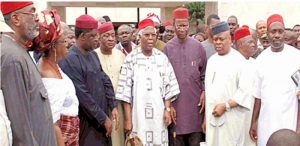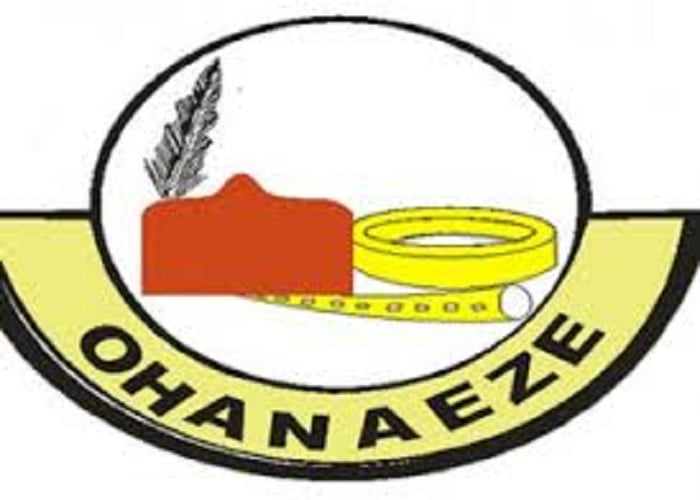By Adagbo ONOJA
Of course, it is nothing less than a diplomatic coup against the Indigenous People of Biafra, (IPOB) when their leader, Nnamdi Kanu, was brought back into the country to face trial from which he managed to run away previously. At the time that he successfully escaped, not a few thought that the military might have tactically allowed him to escape for him to shut up in exchange. That did not happen. He continued his storyline of aspersions on the Nigerian system and claiming credit for violence against the state. The diplomatic summarises his capture and return to the country in so far as the protection he imagined enjoying because he was far from the reach of the Nigerian State crashed somehow. Whether it was state gangsterism, abduction or kidnapping or forced migration is now a theoretical issue because he is now a captive of Nigeria’s internal security agency. The power machine called the state might have lost the primacy in world politics, it still has certain advantages over and above all other contenders: the civil society/transnational activism; international organisations and private authority. That must be the lesson of Kanu’s capture.
 It is a very significant turn for IPOB because if the organisation presses on with violence, it would be making things more complicated for Kanu, diplomatically, judicially and morally. If it stops, it will fizzle out of popular minds too quickly, especially for people whose business and other considerations makes IPOB a nuisance.
It is a very significant turn for IPOB because if the organisation presses on with violence, it would be making things more complicated for Kanu, diplomatically, judicially and morally. If it stops, it will fizzle out of popular minds too quickly, especially for people whose business and other considerations makes IPOB a nuisance.
Be that as it may, the most important question the Kanu fiasco raises is simply the question of what the Igbos want? While it is empirically true that the Southeast has suffered officially sanctioned neglect, what their critics say is that the Igbos never appear to succeed in putting that neglect in perspective. Following the tradition of deliberately undermining whichever group challenges the status quo, the Southeast has been suffering a number of punishments in Nigeria. But, even then, the harshest critics of the Nigerian system would concede that Nigeria has been magnanimous in doing this. They do so by mentioning how, in less than a decade after the war, the Igbos produced the Vice-President of the same country in Dr. Alex Ekwueme. Dr. Ekwueme would have marched on to the presidency in 1999 if the “IRA wing” of the PDP, to quote General Babangida, had not decided that it was dangerous to have an Igbo president when members of the generation that fought in the Nigerian Civil War are still alive and active. It might have been a group-interest argument to enable that fraction to bring in Obasanjo who is the factional leader but that was the reason advanced. Even then, the argument caused a split in the North, for example. While some members of the Northern intelligentsia argued that the Republican character of the Igbos makes an Igbo president inappropriate in 1999 as opposed to the Yorubas who have ran empires, (Nigeria being, in their words, a modern empire), another fraction held the position that giving the presidency to a Yorubaman in 1999 would amount to rewarding insurgency as a way of pressuring Nigeria to yield to ethnic agenda.
This division continued till the PDP Convention in Jos where Obasanjo clinched the party’s ticket. The two camps clashed in Jos and the more wealthy camp of retired Generals prevailed. Adamu Ciroma and other NPN bigwigs who stuck to Ekwueme up to that convention lost everything. It must have been Obasanjo’s consciousness of what preceded his victory that he offered Dr. Ekwueme the position of Senate President right there and then but which Ekwueme rejected and correctly so.

The late Dr Alex EEkwueme surrounded by Igbo elite
Against the foregone, it means neither Nigeria nor the North has really been against an Igbo president. Majority of the G-34 that metamorphosed into the PDP are Northerners. They had approached Ekwueme with the idea of forming a national party that could take over from the military in the aftermath of the June 12 crisis. Dr. Ekwueme told them he was not sure if the Northerners in the group were not acting in unison with General Abacha who was the incumbent dictator then. He asked of them to demonstrate that they were not actually with Abacha. That was how the G-18 emerged to shock General Abacha with a letter asking him to drop the idea of self-succession. It was in early 1998. It was to be the G-19, (one from each state in the North but someone declined, with his own reasons for that). In the end, 18 persons signed the letter, warning Abacha against self-succession. It was a very dangerous thing to do at the time and the letter reverberated throughout Nigeria.
With Dr Ekwueme re-assured, the G-18 transformed into G-34 and eventually the PDP. Ekwueme was thus the presidential candidate selected and decided even before the party had been formed but he never became the presidential candidate and the president because there are powerful interests all over the place in the space of politics.
The logic of this narrative is to show that, in spite of the unwritten rule that any group which challenges the status quo normally suffers the consequences, the dynamics of that in Nigeria has been such that an Igbo president has remained on the card at every turn since 1978. A Vice-President of Igbo origin who would have gone on to succeed his boss in 1987 is a proof of that. The offer of power to Dr. Ekwueme in 1998 by the incipient PDP simply because he was the last elected Vice-President remains an even better proof of that.

Prince Ogbulafor
This background is the puzzle why the ‘Igbo Question’ is never posed in terms of acknowledging these overtures and persuading Nigeria to continue along this line as opposed to trying to borrow an insurgency strategy which does not favour it unlike the Yorubas in 1999. There are people who would say that the Yoruba bided its time until it had a golden opportunity: the annulment of June 12 which they contextually and correctly interpreted as injustice to the Yoruba cultural identity. In other words, OPC was a “justified” insurgency when situated in that background. This contrasts with the IPOB insurgency which had no material provocation other than that Buhari excluded the Igbos from his government. How convincing and whether such a reasoning could have served any purpose is open to question, given how Buhari is running a government that fails the expectations of even Kaduna Mafia mandarins, including Mahmud Tukur and even Mamman Daura. A lackluster government is simply a lackluster government and a very limited criterion for deciding on insurgency.
This is more so that the PDP consummated its error most with Igbo support for the idea of Jonathan Presidency in 2011. In the spirit of the consensus for rotating The Presidency between the North and the South as a way of securing the country after the June 12 crisis, The presidency should have gone back to a Northerner in 2011 once Vice-President Jonathan had completed the first term of that regime. The governors met and decided so somehow and on the basis of which Prince Vincent Ogbulafor, the then PDP National Chairman, made a statement to that effect. Subsequently, Prince Ogbulafor was to be embarrassed out of office for saying so, charged to court with alleged corruption. It was shocking for critical observers who thought the Igbos would know it was in their own interest for the North to have its eight years and for power to return to the South in 2015 since the Igbos would be the natural beneficiary after the Yoruba’s eight years in Obasanjo Presidency, (1999 – 2007). A former National Chairman of a former ruling party is unlikely to laugh at the country’s current misfortune of the country but even then, he is unlikely to understand why and how Nigeria went back to the same Katsina State to pick Buhari in 2015. Before that, Nigerian newspapers were reflecting opinion that ‘zoning’ was only a ‘gentlemen agreement’ peculiar to the PDP when it was a national consensus. Nigeria cannot court opportunism and escape its consequences.
It is time for Nigeria to be a more stable country. All these sense of mostly poorly informed and badly framed group injury is helping nobody and overcoming it is overdue. It is one thing to take the Buhari regime to the cleaners but it is a completely different thing to articulate a secession agenda since such option will turn Nigeria into another site of suffering typical of Africa – women with children and miserable belongings trekking long distances, experiencing rape and hunger because of elite who cannot agree on any model of managing the modern state.
Of course, what this all means is the need for another round of national conversation where every group can tell its story and the victory or defeat of such position allowed to determine the way forward!




























